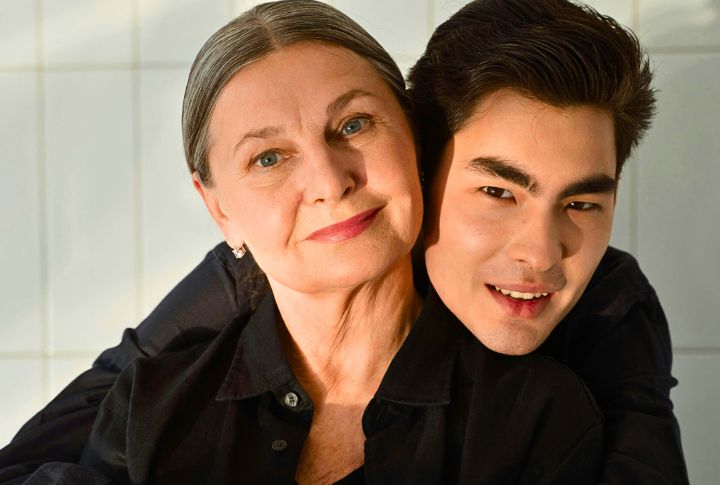
They make you feel younger and see the world through fresh eyes. But dating someone with an age difference also comes with moments of cultural gaps and life-stage mismatches that can catch you off guard. Love doesn’t always follow the rules, but age gaps often come with their own set of realities that can be both beautiful and challenging, depending on how you view it. Here are 20 truths that might change how you view generational gap relationships.
Different Life Stages

Falling in love doesn’t always mean growing at the same pace. One of you might be chasing big dreams, while the other longs to slow down. These differences can feel like missed steps in a dance that is beautiful but slightly offbeat. You should be willing to meet each other halfway if you want this to work.
Contrasting Social Circles
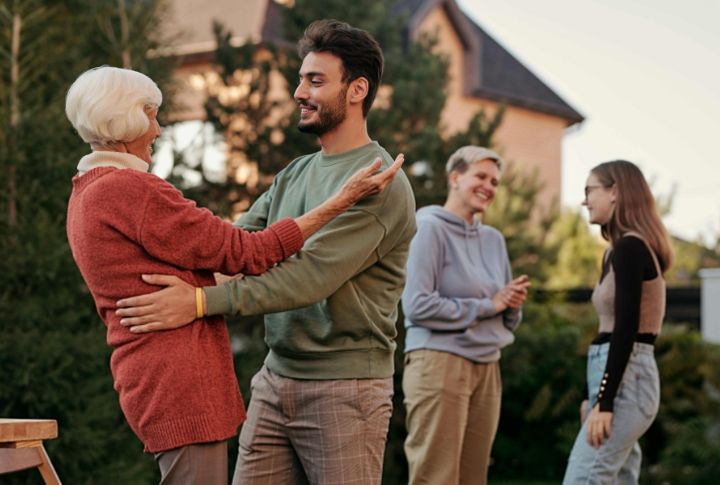
When you’re dating someone with an age difference, friend groups often become a mirror to the gap. References don’t land, and conversations may feel out of sync. What was once effortless can suddenly highlight just how different your social worlds are.
Societal Judgment

Being in a relationship with a significant age gap often means living under a microscope. The stares and the unsolicited opinions are a constant part of life. These couples can feel like they’re defending their choices to a world that still struggles to accept love that breaks the norm.
Energy Levels And Lifestyles

The younger partner is chasing spontaneity with last-minute trips and loud concerts. The other has carved out rhythm and ritual. Such contrasts reflect how differently time is felt and valued, especially when one is still climbing and the other is catching their breath.
Power Dynamics

More experience and stable income can create a subtle upper hand. It’s not always intentional, but it can shape how decisions are made and whose comfort is prioritized. And sometimes, that imbalance becomes the thing no one talks about until it quietly grows.
Differences in Digital Boundaries

Privacy expectations can differ wildly. One partner might overshare on social media or expect constant digital check-ins, while the other values tech-free zones and slow replies. These habits shape how connected each person feels and can spark friction over what’s normal in a relationship.
Different Communication Styles

One person’s natural communication style can feel unclear or disconnected to someone else. Generational gaps often appear in texting habits and conflict resolution styles. So, share your preferences honestly and find a rhythm that ensures both comfort and clarity.
Generational Pop Culture Gaps

When your partner’s favorite childhood song or TV show is something you’ve never heard of, the difference can be oddly isolating. Shared cultural references that typically bond couples may be missing, making it harder to relate instantly. Yet, it’s also an invitation to introduce each other to your worlds.
Judgment From Friends
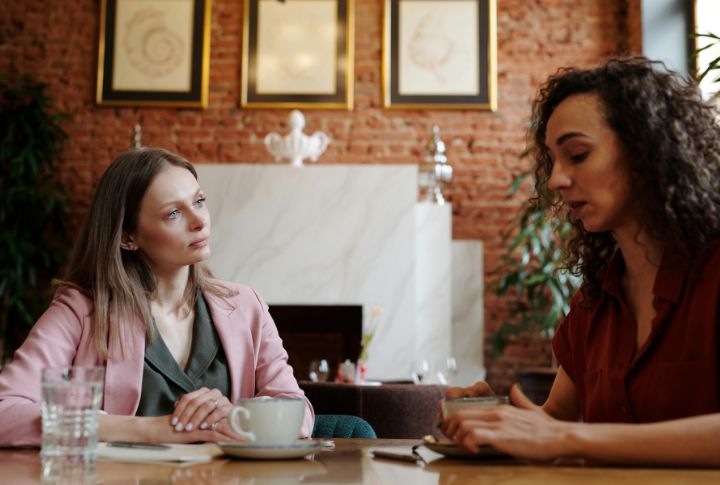
Friends don’t always understand or support your relationship. You will notice fewer invitations or hear subtle criticisms disguised as concern. Sometimes, the younger partner is even seen as immature or the older one as manipulative. If your personal understanding is not clear, it may lead to relationship issues in the future.
Parenting Perspectives

When it comes to kids, age can shift everything. One might feel pressure to start a family soon, while the other isn’t ready or already feels complete. Fertility timelines and parenting philosophies also don’t always line up, and reconciling these differences requires deep emotional honesty.
Facing Age Stereotypes
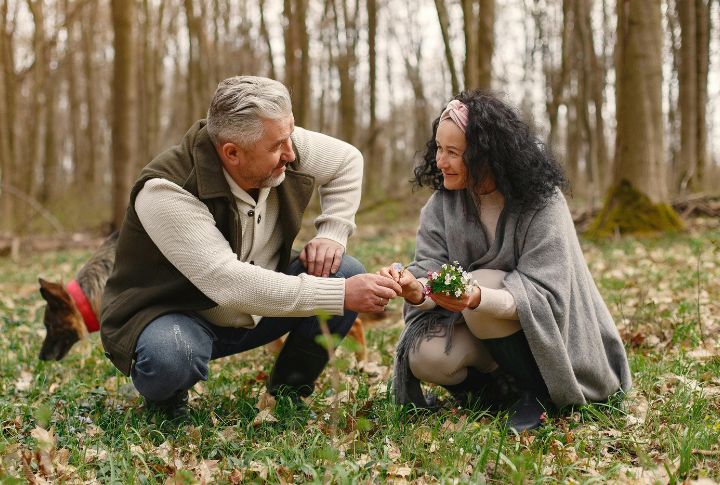
It stings when your love is reduced to a punchline. Society can be quick to slap on labels like “cougar” or “gold digger” without seeing the depth of your bond. These stereotypes can chip away at your confidence and make you question what should feel natural and real.
Fear Of Outgrowing Each Other
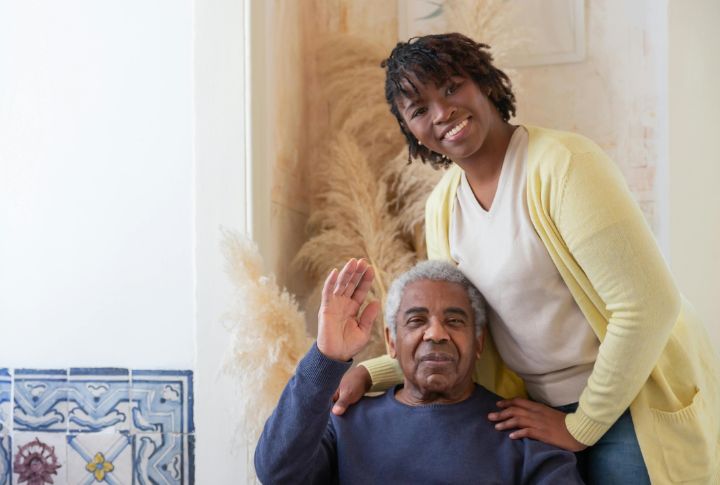
When time feels unevenly paced, fear creeps in. The younger one may be evolving rapidly, while the older one wonders if they’ll still fit into the next chapter. There’s a quiet anxiety around being left behind or losing one’s appeal. So, be clear about your apprehensions and discuss them in detail.
Planning for the Future

As relationships progress, retirement, healthcare, and estate planning often appear on the horizon sooner than expected. What feels easy to navigate at 30 can become complex at 60. These are not the most romantic topics, but they are essential for protecting your bond and future together.
Emotional Maturity Differences

Love doesn’t always grow at the same pace as life. The younger partner might still be testing the waters, while the older one may be craving stability. These differences can feel like emotional mismatches, especially during stress or conflict. It is important to discuss if you are a choice or just another option in a sea they want to explore.
Handling Health Disparities

Nothing makes the age gap feel more real than illness or energy differences. When one partner is thinking about long hikes and adventure, the other may be managing chronic conditions or doctor visits. Facing this isn’t easy, but it opens a space for empathy and redefining what intimacy means across time.
Legal and Ethical Landmines

Some challenges are legal rather than emotional. Age-of-consent laws or healthcare rights can impact couples with significant age gaps. They are serious considerations that require honest planning and sometimes even legal advice to ensure both partners are protected and respected.
Managing Jealousy And Insecurities

It’s hard not to notice when others turn their heads, especially toward the younger partner. Age differences can sometimes spark insecurity or doubts about long-term appeal. Social media habits or flirtatious attention can further amplify these feelings. This is why regular, reassuring communication and transparency go a long way in rebuilding trust.
Facing The “Ex’s” Factor
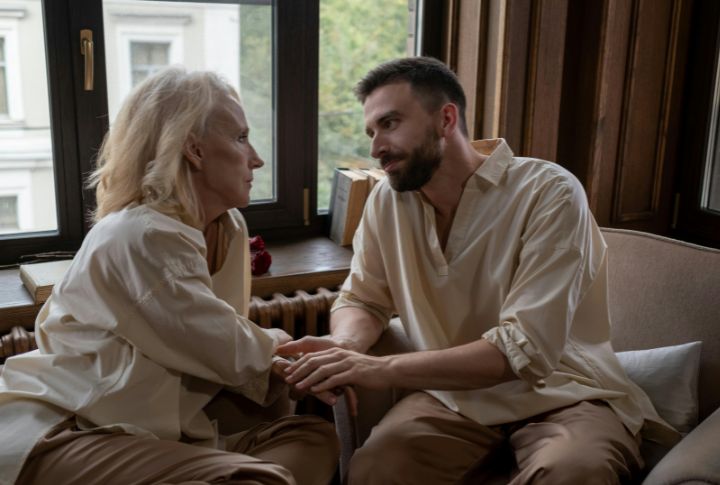
When one partner has decades of dating history and the other is still building theirs, emotional landmines can surface. Stories of past loves or mismatched relationship milestones may stir insecurity. It takes sensitivity and presence to shift focus away from the past and toward creating memories that belong only to you two.
Family Acceptance
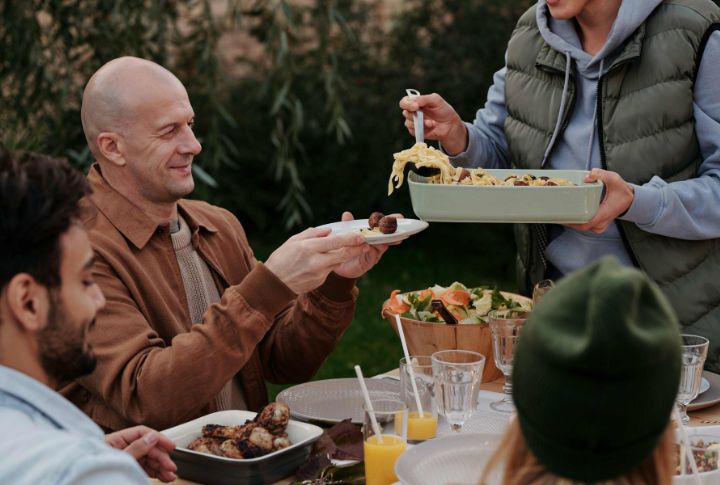
Love can be tested at the dinner table. Your relatives and friends may struggle to accept an age-gap relationship, seeing it as unconventional or mismatched. This emotional strain can be disheartening. Sometimes, even unwavering patience and kindness won’t sway opinions, but being united as a couple can soften the blows.
Identity in the Relationship

Being the “younger” or “older” partner can become part of your identity in ways you didn’t expect. Others may reduce you to a stereotype, or you may begin to define yourself by the age gap. It takes emotional maturity and strong self-awareness to separate who you are from how others label you.

